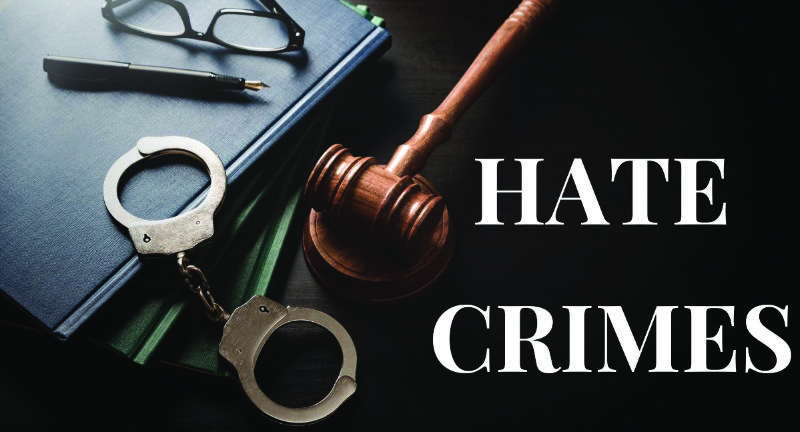Prosecuting Hate Crimes – The Challenge it Poses
A young Thai American bartender, Kunni, says she was victimized twice—first when she was pepper-sprayed while assailants yelled “Go back to your country,” and again by the San Francisco District Attorney’s office, which refused to treat the attack as a hate crime.
In a media briefing on August 23, hosted by Ethnic Media Services, a panel of experts discussed the challenge of prosecuting a hate crime and victims shared their stories.
Speakers
![]()
- Monthanus Ratanapakdee, whose father was killed in what appeared to be a hate crime
- Kunni (not pictured), a bartender who was pepper-sprayed as her attackers yelled “go back to your country.”
- Erin West, Santa Clara County Deputy District Attorney
- Manjusha Kulkarni, co-founder of Stop AAPI Hate
The incident, which occurred during Kunni’s late-night shift at a bar in the Tenderloin district, was caught on video. She provided this footage, along with witness statements supporting her claim that the attack was racially motivated, to prosecutors.
However, the District Attorney’s office concluded there was not enough evidence to pursue hate crime charges. Kunni requested a jury trial but claims she was discouraged from doing so. Her attacker was arrested but released on bail and now walks free without any charges. To make matters worse, the attacker lives in the same neighborhood where Kunni and her daughter reside, and no restraining order has been granted.
“I still have PTSD and panic attacks. I go to the psychiatrist every Wednesday to manage my symptoms. This feels very unfair to me. The prosecutor did not want to hear my story,” Kunni explained.
Justice for Vicha
Kunni’s story mirrors that of Monthanus Ratanapakdee. Her father, Vicha, an 84-year-old Thai grandfather, was taking his usual walk on January 30, 2021, when he was violently shoved to the ground by Antoine Watson, who fled the scene. Vicha tragically succumbed to his injuries. Watson was arrested two days later and remains in jail, but although he was charged with attempted murder, no hate crime charges have been added—even though the attack was caught on camera.
More than three years later, no trial date has been set.
In response to her father’s death, Ratanapakdee founded “Justice for Vicha”, an organization aimed at both honoring her father’s memory and advocating for hate crimes victims. The delay in justice for her father, she said, reflects a broader issue: many hate crimes go unreported due to a general lack of trust in law enforcement.
“Both the victim and the defendant have the right to a fair and speedy trial. That has not happened in my father’s case,” Ratanapakdee said.
Challenges in Hate Crime Prosecution
According to the California Attorney General’s office, there were 1,970 reported hate crimes in the state last year. However, only five of those cases went to trial. During a surge of anti-Asian attacks in 2021, only one case made it to court. Judges are also increasingly turning to alternative sentencing options such as behavior therapy, counseling, or restitution to victims, which means offenders often avoid jail time.
Erin West explained that when a case with potential hate crime elements comes to their attention, two prosecutors review it to determine if hate crime charges should be added. “We take these cases very seriously, and we evaluate them very seriously,” West said.
West pointed out that, to be charged as a hate crime, the crime must be significantly motivated by bias. This is a hurdle in many cases, where other motivations might play a role.
As for the delays in Vicha’s case, West cited Marsy’s Law, which requires that victims be kept informed of important developments like plea deals or bail hearings. She also noted that data on hate crimes is often misleading because it can take years for cases to reach trial, which affects the annual statistics on hate crime prosecutions.
Improving Hate Crime Reporting
West emphasized the need for better data collection, saying, “I would suggest that we shake the trees at the California Department of Justice and see about getting a form that better reflects the number of hate crimes prosecuted.”
Manjusha Kulkarni pointed to a recent audit that revealed law enforcement often fails to properly identify and report hate crimes to the Justice Department. Kulkarni attributes this to insufficient training for officers in recognizing hate crimes.
“Law enforcement officers have a reluctance to see things as hate crimes because they don’t want to believe that their city or their region is a hateful one,” Kulkarni said. She added that hate crimes against Asian Americans are often not perceived with the same urgency as other forms of hate crimes, like swastikas or cross burnings.
Moving Toward Healing
Kulkarni suggested that healing for victims and communities can extend beyond the courtroom. She referenced the California vs. Hate initiative, which provides various resources to support victims, including mental health services.
“It’s not simply enough to prosecute cases when hate happens. We have to actually prevent it from happening in one of the most diverse states.”
“We really need to put the kibosh on hate against all marginalized communities,” Kulkarni concluded.


